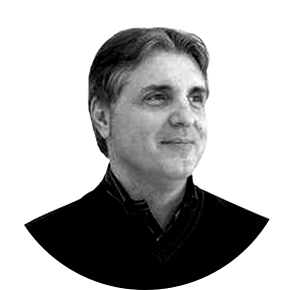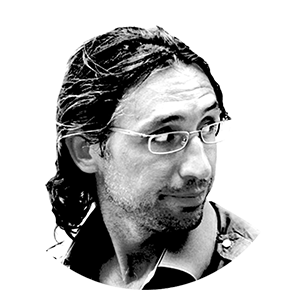Nulla di nuovo… ma, ogni tanto, debbo tornarci sopra…
La fondamentale importanza della passione è confermata anche da quanto sia simulata.
Al di là, e ben prima, dell’avvento dei social e dei cambiamenti radicali dell’ecosistema della comunicazione* (def.1995) – che hanno radicalizzato certe tendenze e dinamiche – una di quelle “cose”, di quelle parole magiche (di quei “valori”), che tutti/tutte dichiarano, che tutte/i devono dichiarare costantemente e sistematicamente, in maniera talvolta ossessiva (e poco spontanea), che tutti/e devono quasi gridare senza alcuna esitazione, è “PASSIONE”, la propria (incrollabile e irriducibile) passione.
Insomma, (quasi) tutti/e – come si deve dire oggi, è un “must” – si dichiarano appassionati/e, richiamano sempre la parola “passione” nelle proprie attività professionali, lavorative, creative, e, nello specifico, nelle attività di studio, insegnamento, educazione e formazione, nella ricerca etc. etc.; oltretutto, richiamandone talvolta il carattere gratuito (sempre meno frequente) e autenticamente generativo.
Ma allora, com’è possibile che tanti progetti/idee/azioni/iniziative, portati avanti da Persone tutte super appassionate, naufraghino dopo qualche tempo, anche in presenza di tutte le risorse necessarie?
Credo che la variabile “tempo” aiuti molto a comprendere e faccia sempre emergere in maniera inequivocabile quanto, di frequente/spesso/molto spesso (decidete voi), questa “passione” continuamente dichiarata/mostrata/palesata/ostentata, anche, in apparenza, in maniera “disinteressata”, sia in realtà spesso finalizzata/funzionale/strumentale all’ottenimento di ben altri obiettivi, non soltanto in termini di carriera e visibilità.
In altre parole, e per esser ancor più diretto – lo scrivo dopo tanti anni di esperienza e tantissime persone incontrate – credo di poter confermare che, in fondo, esista un metodo/un sistema quasi infallibile (?) per capire e avere conferma se le Persone siano davvero appassionate, rispetto a ciò di cui si occupano e che abitualmente fanno, o se – come talvolta/spesso/molto spesso accade – siano soltanto estremamente abili nel simulare – nel mettere in scena – questa stessa passione per ciò che progettano, insegnano, ricercano, agiscono, fanno.
Il metodo/sistema infallibile (?) è legato, inevitabilmente e indissolubilmente, come detto, alla variabile “tempo” e, in particolare, agli specifici obiettivi di carriera, di potere, di lavoro, di visibilità e reputazione/immagine da conseguirsi… obiettivi che, più o meno tutti/e, si prefiggono.
Ebbene, fateci caso…
Una volta conseguiti certi obiettivi di carriera e/o visibilità/reputazione/immagine/potere, tutte quelle idee, quelle azioni, quelle iniziative, quei progetti, come d’incanto, si arrestano e cessano – quasi all’istante – di essere alimentati e portati avanti, tutto si ferma/si arresta: e la passione, la grande passione, va (quasi) sempre, come si dice, a farsi benedire.
Richiamando una vecchia formula, proposta in passato, in un’epoca in cui si simula tutto (anche il pensiero), di fondamentale importanza, anche e soprattutto, “simulare la passione”.
In fondo, a pensarci bene, non ci sarebbe niente di male, neanche in tutto questo (ognuno è libero di agire come meglio crede… anche di recitare/fingere) – potrei dire – siamo umani, con tutte le nostre fragilità e, talvolta, con tutte le nostre miserie;
Tuttavia, il punto è/è stato e sarà sempre un altro, a mio avviso: questo modo di agire/di simulare, anche e soprattutto la passione per ciò che si fa, porta con sé, quasi inevitabilmente e/o necessariamente, l’inganno, talvolta la presa in giro, perfino lo sfruttamento e la strumentalizzazione degli altri… magari, proprio di quelli che le cose le fanno/le portano avanti, davvero, con serietà, impegno, sacrificio, tempo, con passione e senza altri obiettivi latenti. Quelli/e che, in queste situazioni, si lasciano anche trascinare dalla passione simulata.
Questioni educativa e culturale, da sempre!
La passione per ciò che si fa…
————————————————–
As always, I share with pleasure a (very) short selection of scientific publications:
Dominici P., “Anatomies and Dynamics of the Society-Mechanism: Among Myths of Simplification, Facilitation and Disintermediation”, in “Chaos, Complexity and Sustainability in Management”
➡️ https://academia.edu/resource/work/121248616
Copyright: © 2024
ISBN13: 9798369321256ISBN13
DOI: 10.4018/979-8-3693-2125-6.ch001
———————-
#ScientificBooks #Series
Dominici, “Democracy is Complexity. Social Transformation from Below” https://oajournals.fupress.net/index.php/smp/article/view/15009 , in SMP
#OpenAccess #PeerReviewed
——-
Dominici, P.(2023), “Beyond the Emergency Civilization: The Urgency of Educating Toward Unpredictability”, Sengupta, E. (Ed.) Higher Education in Emergencies: Best Practices and Benchmarking (Innovations in Higher Education Teaching and Learning, Vol. 53), Emerald Publishing Limited, Leeds, pp. 25-45. https://doi.org/10.1108/S2055-364120230000053003
——
“From Emergency to Emergence. Learning to inhabit complexity and to expect the unexpected”, in
Pdf https://academia.edu/resource/work/99942554
——
“Beyond the Darkness of our Age. For a Non-Mechanistic View of Complex Organization as Living Organisms” in #RTSA
http://rtsa.eu/RTSA_2_2022_Dominici.pdf?fs=e&s=cl #PeerReviewed
“The distinction between ‘society-mechanism’ and ‘society-organism’ – on which I have been working and doing research for many years – is linked to the confusion we continue to make, in educational, social, economic, social and cultural terms, between ‘complicated systems’ (manageable, predictable) and ‘complex systems’ (unpredictable, irreversible and marked by ‘emergent properties’).
La distinction entre “société-mécanisme” et “société-organisme” – sur laquelle je travaille et fais des recherches depuis de nombreuses années – est liée à la confusion que nous continuons à faire, en termes éducatifs, sociaux, économiques, sociaux et culturels, entre “systèmes compliqués” (gérables, prévisibles) et “systèmes complexes” (imprévisibles, irréversibles et marqués par des “propriétés émergentes”)”
————————————
Dominici, P. The weak link of democracy and the challenges of educating toward global citizenship. Prospects (2022). UNESCO
Here’s the link: https://link.springer.com/article/10.1007/s11125-022-09607-8#citeas
Springer Nature – #PeerReviewed
——————–
Research Article
”The Digital Mockingbird: Anthropological Transformation and the “New Nature”, in World Futures.The Journal of New Paradigm, Routledge, Taylor & Francis, Feb. 2022.
————
”La Gran Equivocación: Replantear la educación y la formación virtual para la “sociedad hipercompleja”, in “Comunicación y Hombre”.Número 18. Año 2022
👉 https://academia.edu/resource/work/71194859
#PeerReviewed
———–
“Beyond the Darkness of our Age. For a Non-Mechanistic View of Complex Organization as Living Organisms” in RTSA
👉 http://rtsa.eu/RTSA_2_2022_Dominici.pdf?fs=e&s=cl #PeerReviewed
——————–
“From Below: Roots and Grassroots of Societal Transformation, The Social Construction of Change”, in CADMUS, 2021 #PeerReviewed
“That systemic change must begin from grassroots communities and single individuals and groups, and by definition can never be a top-down imposition, implicates a necessary rethinking of our educational institutions, which are still based on logics of separation and on “false dichotomies” (quote)
http://cadmusjournal.org/article/volume-4/issue-5/essay5-social-construction-change
———————-
“Educating for the Future in the Age of Obsolescence”,
This article was peer-reviewed and selected as one of the “outstanding papers” presented at the 2019 IEEE 18th International Congress.
👉 https://academia.edu/resource/work/44784439
—————————
“For an Inclusive Innovation. Healing the fracture between the Human and the technological*” #PeerReviewed
“Objects as Systems. The strategic role of Education”
👉 https://link.springer.com/article/10.1007/s40309-017-0126-4/ in European Journal of Future Research, SPRINGER Edu …
__________
“A New Paradigm in Global Higher Education for Sustainable Development and Human Security”, November, 2021 | BY G.JACOBS, J. RAMANATHAN, R. WOLFF, R.PRICOPIE, P.DOMINICI, A.ZUCCONI, in CADMUS, Vol.IV, 2021.
https://www.cadmusjournal.org/article/volume-4/issue-5/new-paradigm-global-higher-education
————————-
”Controversies on hypercomplexity and on education in the hypertechnological era”
Link to PDF https://www.academia.edu/44785185/Controversies_about_Hypercomplexity_and_Education_cvs_15_11dom
#PeerReviewed
———————
“Communication and the SOCIAL PRODUCTION of Knowledge. A ‘new social contract’ for the ‘society of individuals’
https://academia.edu/resource/work/44804068
#Research #PeerReviewed
—————————
“Education, FakeNews and the Complexity of Democracy”.
“The real problems we are facing today are not the fake news, post-truths, deep fakes, or disinformation of various kinds and origins, but a socially constructed pre-disposition to conformism; in short, the decline of democracy. These are not problems merely of technology and cannot be solved by technology alone” (quote).
👉 https://www.francoangeli.it/Riviste/schedaRivista.aspx?IDArticolo=61331&Tipo=Articolo%20PDF&lingua=it&idRivista=177 #PeerReview
—————————
An approach and research since 1995



